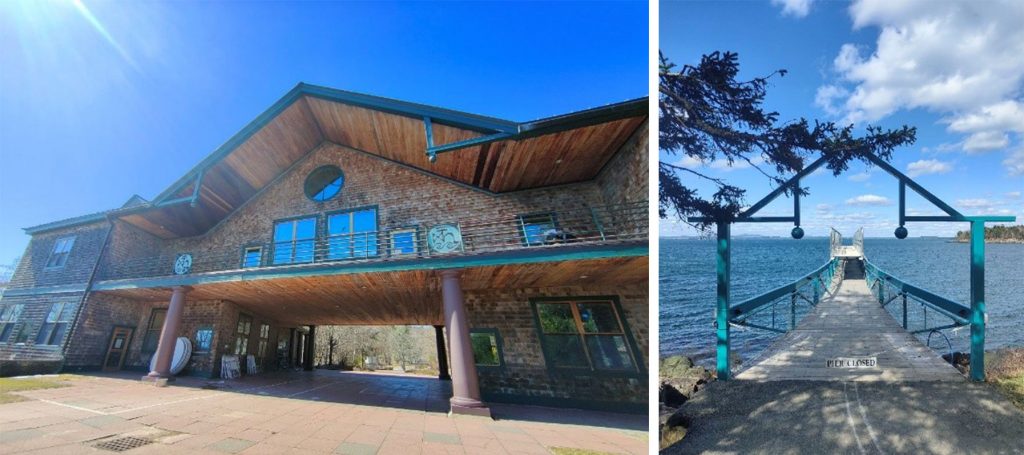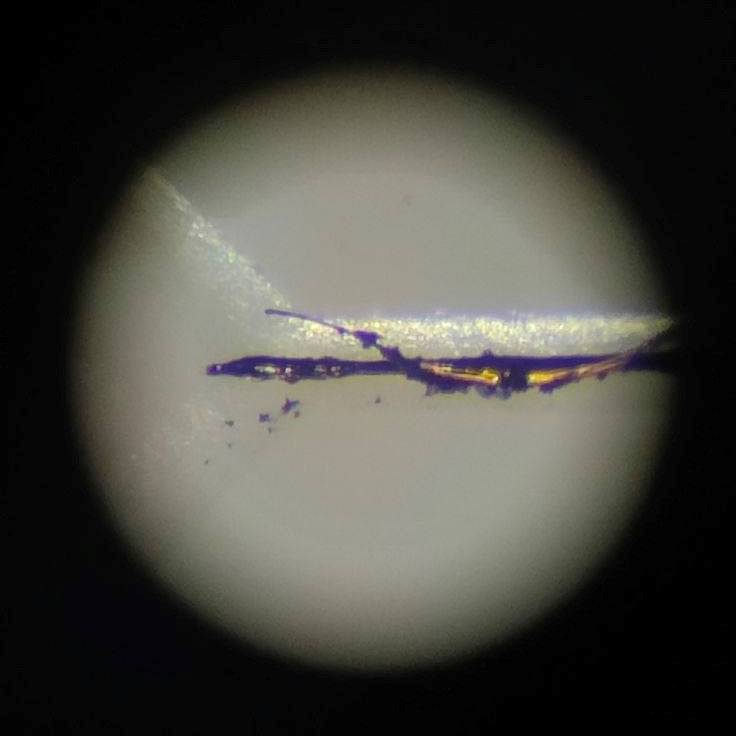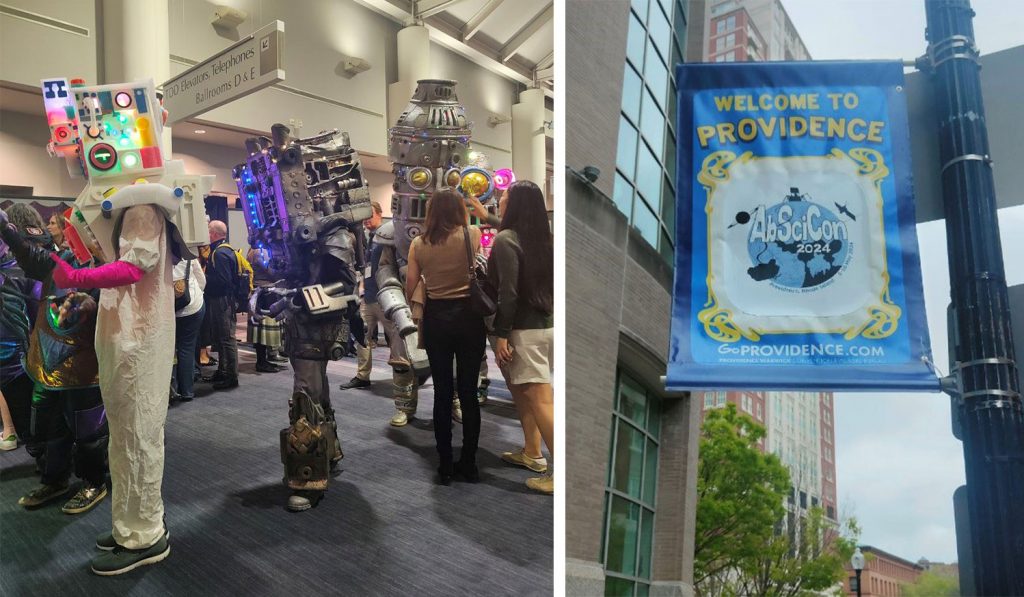From April until the beginning of June 2024, I was a research visitor at the College of the Atlantic at Dr. Reuben Hudson’s chemistry lab. Why be a research visitor? It is a great opportunity to discover a new culture and country, establish collaborations, and learn new experimental techniques.

The College of the Atlantic (Bar Harbor, Maine, US), is located on an island with one of the most famous US national parks: the Acadia National Park. While on evenings and weekends I was able to be immersed in nature and explore the island, in the lab I learned a new technique, never done before, and that I needed to master as I’m going to use it and optimize it through my research. What I learned is microfluidics, where inside a chip flow two liquids, which create a laminar flow, and at this flow interface a mineral is formed (Photo 2).

Photo 2: Experiment gone wrong. Initial attempt to form iron sulfide. The line breaks off, whereas it should remain solid and straight. The image was taken on my camera on a x4 objective.
It was hard. I had a little less than 2 months to set up the equipment and learn how to operate it. Yes, I was under pressure because I wanted to succeed, but also because I aimed to present the initial results at a conference. Long story short, what I presented at the conference was just the experimental set up and an experiment gone wrong. Why? Because science is about failures and learning from them. I feel this aspect is not shown, and most of the time failure have a negative, traumatic, implication to it. Yet, this is how our society evolved, by learning from failures and to keep on improving. Have I made a significant impact by presenting this at the conference? No, but by not saying anything I wouldn’t have felt good, as I wasn’t showing the research process, which can be useful for other researchers that would like to repeat the experiment.
But ok, let’s dive more into the conference and what happened.
I attended the biennial Astrobiology Science Conference (AbSciCon, Photo 3) (Providence, USA), where my abstract was accepted for a 15-minute talk. How did I prepare? I made the slight mistake of mostly focusing on my experiments until 3 days before my presentation. Yes, I did start to work on the slides a few weeks in advance, but I fully finalized them only the day before my talk which means that I didn’t have time to practice much with the finalized slides (yes, I am one of those students that says “I’m more productive closer to the deadline”). But it is ok. On the day of the presentation, I didn’t attend the morning sessions, and instead I practiced my full speech. This gave me confidence and I was able to relax. If I would have been at the conference from the morning, I would have just thought about my presentation, gotten nervous, and not been in the right headspace. What I did here, it was like my pre-game preparation. As an athlete, on the day of a match, I usually have my pre-game routing, making sure that I am 100% ready. So, if you feel nervous about giving a speech, just do whatever makes you feel at ease and create your own routine.
The talk went well, I had a few questions and afterward people came and talked with me about the research and we exchanged ideas. But you might wonder, why I have just two not-so-good pictures of the conference as shown below? Thank you for asking, and that is because on the 3rd day of the conference (out of the 5 days) I was stuck in bed sick. I am still mad, yet I did manage to have 2 great days at the conference where I made incredible connections. Here are a few tips on how to get prepared and enjoy the conference (even when you are sick).

Before the conference:
- Look at the program and put in your calendar the sessions you want to attend.
- Write down the names of the people that you’d like to talk to and the topic of discussion. Conferences are busy, and you won’t have time to talk with everyone, this will make it easier to keep track of things.
- Plan your finances: look online if there are student grants that can cover your expenses. Other options are your supervisor and your savings. I wasn’t able to find any funding offered by Tokyo Tech, so I had to rely on my institution (I received the ELSI Research Exchange Program) and my supervisor funding.
- Make a few presentation practices by presenting to people within your field (your lab members) and people outside of your field (could be your family) to make sure that your message is clear for the audience who has never seen your research before.
At the conference:
- Join social gatherings, they are the best places to connect with other attendees.
- Join social evenings organized by associations. On my last evening, I joined the Origin of Life Early Career Network group for a dinner. It was amazing! I got to talk more about research in an informal way, exchange ideas and opinions, and also create an international network related to my field of study. Look for groups or societies relevant to you and join them at the next conference.
- Save contact details and what you’d like to write to them about. Conferences are busy and you cannot talk with everyone. After the event has ended, you can email the speaker or the person you didn’t manage to talk to. This is a very common thing to do.
- Get out of your comfort zone and don’t talk with just the people you already know. Get a new perspective, and maybe your next postdoc/PhD position?
While sick:
- Make sure you have friends that bring you ice cream, because it’s the only thing you can eat.
- I was able to attend some online sessions that were live-streamed (remember to turn off your camera so no one won’t see how pale you are).
- Stay in touch with the people that you were supposed to talk to by sending them emails.
- Have some friends that can do a video call for the talk you really want to attend but it is not lived streamed. You won’t be able to look at the slides, but you still can learn from it.
